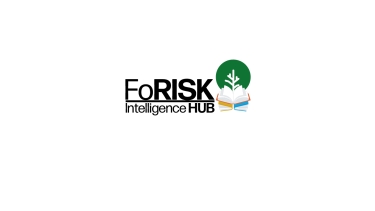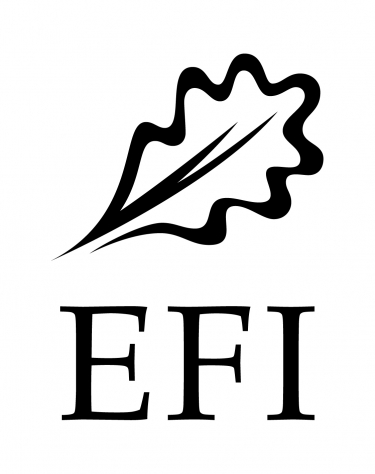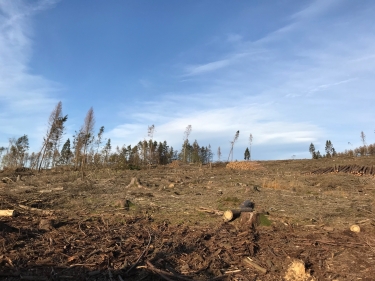Living with bark beetles: New perspectives on an alarming problem

EFI’s latest science-policy study draws together information from across Europe and North America to provide new recommendations on dealing with increasing bark beetle outbreaks in Europe’s conifer forests.
Bark beetles are a diverse group of insects with a global distribution. The overwhelming majority of bark beetle species breed only in dead trees and tree parts, and play a valuable role in cycling nutrients and as food for other animals. However, a few outbreaking species ꟷ in Europe primarily the spruce bark beetle Ips typographus ꟷ colonize stressed and dying trees when their populations are low, but then mass-attack large numbers of healthy trees once their populations are high.
Ecological, economic and social consequences
There has been an alarming increase in impacts of bark beetle outbreaks in conifer forests in recent years, for example in Austria, Czech Republic, Germany and Slovakia and also in North America. These outbreaks have profound and long-lasting impacts on forest ecosystems, which can be seen as highly positive (fostering biodiversity) to highly negative (reducing carbon storage or disrupting timber supply). Outbreaks affect regional economies, markets and employment, and some recent outbreaks and efforts to manage them have even led to political conflicts and social unrest.
Climate change intensifying bark beetle outbreaks
Synchronized by extreme weather, recent bark beetle outbreaks have already reached a supranational scale. Outbreaks are likely to further increase in extent and severity in the future due to climate change.
The report aims to help European and national policy makers understand the complex roles bark beetles play in our forests, and provide the scientific basis for robust forest policies and management options to address bark beetle problems. It recommends:
- Tailor-making management strategies for bark beetle outbreaks (the report provides a toolbox to help with this)
- Clearly defining local management objectives, in close collaboration with local communities
- Strengthening European-level coordination and creating cross-sector crisis management plans to manage large-scale outbreaks
- Adopting a holistic, landscape-scale approach that integrates monitoring, sanitation, silviculture and non-intervention.
The study will be published and its main outcomes discussed at the ThinkForest event, How to respond to forest disturbances in Europe, on 4 April in Prague, Czech Republic.
More information
Living with bark beetles: impacts, outlook and management options. From Science to Policy 8. European Forest Institute.
Authors: Tomáš Hlásny, Paal Krokene, Andrew Liebhold, Claire Montagné-Huck, Jörg Müller, Hua Qin, Kenneth Raffa, Mart-Jan Schelhaas, Rupert Seidl, Miroslav Svoboda, Heli Viiri.
The study is published on 4.04.2019 and is freely downloadable here: http://www.efi.int/sites/default/files/files/publication-bank/2019/efi_fstp_8_2019.pdf
This work and publication has been financed by EFI’s Multi-Donor Trust Fund for policy support, which is supported by the Governments of Austria, Czech Republic, Finland, Germany, Ireland, Italy, Lithuania, Norway, Spain and Sweden.
Photo: Disturbance legacies, High Tatras, Slovakia; Author: Rupert Seidl


